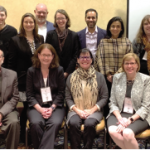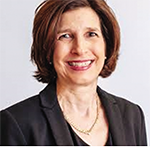Pediatric rheumatologists are few and far between in rural America. Financial incentives, such as loan repayment, may help draw more providers to the subspecialty and the underserved regions of the U.S.


Pediatric rheumatologists are few and far between in rural America. Financial incentives, such as loan repayment, may help draw more providers to the subspecialty and the underserved regions of the U.S.

Arabi Rasendrakumar, MBBS, Aakanksha Khanna, MD, Dawid Czarny, MD, & Alysia Kwiatkowski, DO, MS |
Rheumatologists play a critical role in healthcare delivery, especially with an aging U.S. population. Despite this, a workforce shortage exists—one that is projected to worsen.1,2 The ACR CareerConnection service is free to job seekers searching for opportunities in the field of rheumatology.3 This study examines currently available rheumatology employment opportunities across the U.S. The ACR…
The ACR has joined with a coalition of organizations dedicated to improving the health and wellbeing of children and adolescents to request $50 million to fund the Pediatric Subspecialty Loan Repayment Program.
On Sept. 15, rheumatology advocates met virtually with members of Congress to share personal accounts of how telehealth is making a difference during the COVID-19 pandemic and what will help stem a workforce shortage.

Erin Arnold, MD; William Arnold, MD; Gary Crump, MD; David Sikes, MD; Drew Johnson, MS, MBA; & Timothy Harrington, MD |
The ACR position statement on access to care proposes the goal that “… all patients have timely access to expert rheumatology care … .”1 The reality is that new and established rheumatology patient wait times are often prolonged, causing delays in necessary diagnosis and treatment. The 2005 and 2015 ACR Workforce studies document intractable and…

As president of the Georgia Society of Rheumatology (GSR), Wambui Machua, MD, a rheumatologist with Piedmont Physicians Rheumatology, Atlanta, oversees a membership of 90 rheumatologists, six orthopedists, two nurses, 85 physician assistants and 27 fellows and residents. According to Dr. Machua, the GSR, founded in 1967, continues to pursue its original mission of providing educational…

Linda Childers |
As state rheumatology societies go, the Nebraska Rheumatology Society (NRS) is one of the new kids on the block. Established two years ago, the NRS hopes to involve all 27 rheumatologists across the state. Marcus Snow, MD, a rheumatologist at the University of Nebraska Medical Center (UNMC), Omaha, says the state’s rheumatologists are spread across…

Carina Stanton |
SNOWMASS VILLAGE, COLO.—A major workforce shortage, a population of patients taking immunosuppressants where safety concerns and the patient experience are critical, and an increasing focus on remote patient monitoring and telehealth are driving a discussion regarding the role digital wearables play in rheumatologic care. “We need to be more thoughtful and efficient in taking care…

Investing in rheumatology training is essential to building a strong and capable workforce. Clinician educators are responsible for developing educational programs, instructing rheumatologists to meet accreditation standards and promoting an atmosphere of quality care for patients. Although clinician educators play a critical role in attracting the next generation of rheumatology professionals, faculty pursuing careers as…

Mike Fillon |
ATLANTA—The rheumatology profession faces a severe shortfall of practitioners that threatens the ability to address patients’ needs. “Even if we doubled the number of positions for fellowship training, we wouldn’t meet the increasing demand on our workforce,” said Marcy B. Bolster, MD, associate professor of medicine at Harvard Medical School, Boston, and director of the…